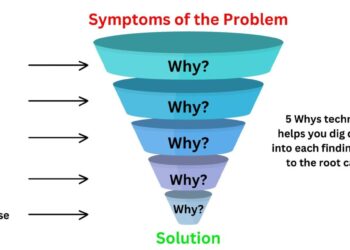How To Make Your Money Work Harder is not just a catchy phrase; it’s a vital principle that every savvy individual should embrace. In today’s fast-paced financial landscape, understanding how to optimize your earnings can lead to a brighter financial future. By exploring various avenues such as investments, budgeting techniques, and passive income streams, you can position yourself to build wealth effectively. This exploration will guide you through the essentials that can transform your financial journey.
From grasping the fundamentals of financial literacy to implementing actionable investment strategies, we will cover everything you need to know. Whether you’re a novice in finance or looking to sharpen your skills, this discussion will provide insights into making smarter money choices.
Understanding the Concept of Making Money Work Harder

Financial literacy is a crucial skill that allows individuals to make informed decisions about their money. Understanding how to make your money work harder encompasses grasping various financial concepts, assessing personal financial health, and exploring different investment avenues. This exploration is vital for achieving financial independence and ensuring long-term wealth growth.
Assessing your current financial situation involves taking a close look at your income, expenses, savings, and debts. This analysis provides a clear picture of where you stand financially and highlights areas for improvement. A good starting point is to create a comprehensive budget that Artikels your monthly income versus your expenses. This exercise can pinpoint spending habits that may be siphoning away potential savings. Consider calculating your net worth by subtracting liabilities from assets, as it serves as a tangible measure of your financial health.
Methods to Assess Current Financial Situation, How To Make Your Money Work Harder
Understanding where your financial journey starts is essential for making progress. Here are key methods to assess your financial situation:
- Budgeting: Create a detailed budget to track income and expenses, ensuring you identify unnecessary expenditures.
- Net Worth Calculation: Calculate your net worth by listing all assets (savings, investments, property) and liabilities (loans, credit debt) to see your overall financial picture.
- Financial Goals Assessment: Define short-term and long-term financial goals to guide your savings and investment strategies.
By applying these methods, you can identify areas that require attention and take actionable steps towards improvement.
Types of Investments for Money Growth
Investing is a powerful tool to grow your wealth over time. Different investment vehicles can suit various risk appetites and financial goals. Here are a few notable types:
- Stocks: Investing in shares of companies can offer substantial returns, but it comes with higher risks. The stock market has historically provided an average annual return of around 7% to 10% after inflation.
- Bonds: Fixed-income securities like government and corporate bonds can provide steady interest income with less volatility than stocks. They are generally viewed as safer investments.
- Real Estate: Purchasing property can be a beneficial long-term investment. Real estate often appreciates in value and can generate rental income, making it a tangible asset.
- Mutual Funds and ETFs: These pooled investment vehicles allow individuals to invest in a diversified portfolio of stocks and bonds, managed by professionals.
Consideration of these investment types offers opportunities to diversify and enhance your financial portfolio, ultimately leading to making your money work harder for you.
“Investing is not just about making money; it’s about making your money work for you.”
Effective Strategies for Investing
Investing can be a powerful way to make your money work harder for you. By understanding various investment strategies and options, individuals can maximize their potential returns and build wealth over time. This section will delve into effective investing methods, highlighting key insights into stock market investing, real estate versus traditional savings accounts, and the importance of portfolio diversification.
Overview of Stock Market Investing
The stock market presents an opportunity for investors to buy shares of companies, allowing them to share in the profits and growth of these businesses. Historically, stock market investing has provided higher returns compared to other investment avenues, such as bonds or savings accounts. The average annual return on the stock market hovers around 7% to 10%, after adjusting for inflation, which can significantly outpace the returns from more conservative investments over the long term.
The stock market operates on the principle that, as companies grow and generate profits, their stock prices will increase, thereby increasing the value of the investment. For instance, if an investor buys 100 shares of a company at $50 per share, they would have an initial investment of $5,000. If the value of the shares rises to $70, the investment would grow to $7,000, yielding a profit of $2,000 – a 40% increase.
However, it’s crucial to understand that investing in stocks carries risks, including market volatility and the potential for loss. To mitigate these risks, investors may choose to adopt a long-term investment strategy, focusing on quality companies with solid fundamentals and growth potential.
Comparison of Real Estate Investment Options Versus Traditional Savings Accounts
Investing in real estate is another effective strategy for making money work harder. Unlike traditional savings accounts, where interest rates are typically low (often below 1% annually), real estate can offer substantial returns through property appreciation and rental income.
Here are some important points of comparison between real estate investments and traditional savings accounts:
- Potential Returns: Real estate can provide an annual return of 7% to 12% on average, especially in growing markets, compared to the nominal returns of savings accounts.
- Cash Flow Generation: Real estate investments can generate regular cash flow through rental income, offering monthly returns while property values appreciate.
- Tax Benefits: Investors can benefit from various tax deductions, including mortgage interest, property depreciation, and property taxes, which are not available with traditional savings accounts.
- Inflation Hedge: Real estate often appreciates in value over time, providing a hedge against inflation, whereas savings accounts may lose purchasing power.
Real estate investments require more capital upfront and involve managing properties, but they can be an excellent option for individuals seeking long-term wealth accumulation and passive income.
Benefits of Diversifying Your Investment Portfolio
Diversification is a crucial strategy in investing, which involves spreading investments across various asset classes to reduce risk. By not concentrating all your money in one investment or market sector, you can protect your portfolio from volatility and potential losses.
Implementing a diversified portfolio can be achieved in several ways:
- Asset Allocation: Allocate your investments across different asset classes such as stocks, bonds, real estate, and commodities based on your risk tolerance and investment goals.
- Sector Diversification: Invest in companies from various sectors (technology, healthcare, finance, consumer goods) to mitigate risks associated with economic downturns impacting a specific industry.
- Geographical Diversification: Consider investing in both domestic and international markets to capitalize on growth opportunities worldwide and hedge against localized economic challenges.
- Investment Vehicles: Utilize mutual funds or exchange-traded funds (ETFs) that automatically provide diversification by holding a variety of stocks or bonds within a single fund.
By diversifying, investors can potentially enhance their returns while minimizing the impact of any single investment’s poor performance on the overall portfolio, leading to a more stable investment experience.
Budgeting Techniques to Maximize Savings: How To Make Your Money Work Harder
Creating a budget is essential for anyone looking to manage their finances effectively and maximize savings. By implementing various budgeting techniques, you can gain better control over your income and expenditures, ultimately allowing your money to work harder for you. This section explores effective budgeting methods, helps identify unnecessary expenses, and provides a structured guide to create a realistic budget aligned with your financial goals.
Budgeting Methods and Their Effectiveness
Several budgeting methods can help individuals and families achieve their savings goals. These techniques not only provide clarity on spending habits but also encourage disciplined financial behavior. Below are some popular budgeting methods along with their effectiveness in saving money:
- Zero-Based Budgeting: This method allocates every dollar of your income to specific expenses, savings, or debt repayments, ensuring that you have a purpose for every cent you earn. It promotes accountability and precise financial planning.
- The 50/30/20 Rule: This simple approach divides your after-tax income into three categories: 50% for needs, 30% for wants, and 20% for savings. This method offers a balanced way to manage finances without feeling overly restrictive.
- Envelope System: Popularized by financial expert Dave Ramsey, this technique involves using envelopes filled with cash for specific spending categories. Once the cash is gone, no further spending occurs in that category, effectively curbing impulse buys.
- Pay Yourself First: Prioritizing savings by automatically transferring a certain percentage of your income into a savings account before addressing expenses encourages a savings mindset and helps build an emergency fund.
Identifying and Reducing Unnecessary Expenses
One of the key components of successful budgeting is recognizing areas where you can cut back on spending. Unnecessary expenses can drain your finances and hinder your ability to save. Here are some techniques to help identify and reduce these costs:
- Track Your Spending: Keep a detailed record of your daily expenses for at least a month. This tracking will illuminate patterns of spending that may not align with your financial goals.
- Evaluate Subscriptions and Memberships: Review all recurring subscriptions, such as streaming services or gym memberships. Cancel those that are underutilized or not necessary.
- Cut Back on Dining Out: Eating out frequently can strain your budget. Consider meal prepping and cooking at home more often to save significantly.
- Negotiate Bills: Contact service providers to negotiate better rates on bills such as insurance or internet services. Often, simply asking can lead to discounts or promotions.
Creating a Realistic Budget Step-by-Step
Establishing a realistic budget tailored to your personal financial situation is crucial. Follow this step-by-step guide to create a budget that aligns with your financial goals:
- List All Sources of Income: Calculate your total monthly income, including salary, freelance work, and any additional sources.
- Identify Fixed and Variable Expenses: Break down your monthly expenses into fixed (rent, utilities) and variable (groceries, entertainment) categories.
- Set Savings Goals: Determine specific savings goals, such as building an emergency fund or saving for a vacation, and allocate funds accordingly.
- Allocate Funds: Based on the budgeting method you’ve chosen, allocate your income to each category, ensuring that your expenses do not exceed your income.
- Review and Adjust: Regularly review your budget to see if you are staying on track. Adjust as necessary to accommodate changes in income or expenses.
“A budget is telling your money where to go instead of wondering where it went.”
Utilizing Passive Income Streams
Creating passive income streams is an essential strategy for making your money work harder. By diversifying your income sources, you not only increase your financial stability but also pave the way for future investments. Passive income allows you to earn money without actively working for it, freeing up your time for other pursuits.
Various sources of passive income can help you build wealth over time. Understanding how to get started with each can provide you with a solid foundation to create multiple streams of income.
Different Sources of Passive Income
Passive income can come from several avenues. Here are some popular sources, along with tips on how to initiate each:
- Dividend Stocks: Investing in dividend-paying stocks allows you to earn a share of a company’s profits on a regular basis. Start by researching companies with a strong history of dividend payments and consider using a brokerage account to purchase shares.
- Real Estate Investments: Rental properties can generate consistent income. Begin by researching local real estate markets, determining your budget, and considering whether you want to manage the property yourself or hire a property manager.
- Peer-to-Peer Lending: This involves lending money to individuals or small businesses online, earning interest on the loans. Platforms like LendingClub or Prosper facilitate such investments. Sign up on a lending platform and start by investing small amounts in multiple loans to diversify risk.
- Creating Digital Products: E-books, online courses, or printables can generate income long after the initial work is done. Identify a niche or area of expertise, create the product, and use platforms like Amazon or Udemy for distribution.
- Affiliate Marketing: Promoting products or services through unique affiliate links can earn you commissions. Build a blog or social media presence and partner with companies that align with your audience’s interests.
Creating and Maintaining a Side Business
Establishing a side business can be an effective way to generate additional income. A structured plan is crucial for success.
To get started, consider the following steps:
- Identify Your Skills or Interests: Choose a business idea that aligns with what you enjoy or are skilled at. This can increase your motivation and chances of success.
- Market Research: Analyze the demand for your product or service, as well as your competition. Understanding your audience will guide your business strategies.
- Develop a Business Plan: Artikel your business goals, target market, pricing strategy, and marketing approach. Having a clear plan can streamline your efforts.
- Set Up Your Business: Register your business name, acquire necessary permits, and set up a dedicated workspace. Consider using online platforms for e-commerce or service offerings.
- Promote Your Business: Utilize social media, networking, and online advertising to reach potential customers. Engaging with your audience can build loyalty and increase sales.
- Evaluate and Adjust: Regularly assess your business performance and adapt your strategies as necessary. Staying responsive to market changes can enhance your business sustainability.
Leveraging Existing Assets for Passive Income
Your existing assets can be powerful tools for generating passive income. Here’s how to effectively leverage them:
- Real Estate Properties: If you own property, consider renting it out. Short-term rentals via platforms like Airbnb can yield higher returns than traditional renting. Be mindful of local regulations and property management responsibilities.
- Investments: Use your existing investment portfolio to generate income through dividends or interest. Reinvest earnings to compound growth or diversify into new income-generating investment vehicles.
- Content Creation: If you have created digital content, such as blogs or videos, monetizing through ad revenue or sponsorship deals can provide passive income. Building a loyal audience enhances earning potential over time.
- Intellectual Property: If you have created music, art, or inventions, licensing these can generate ongoing royalties. Protecting your intellectual property rights through legal means is essential for maximizing earnings.
By exploring these avenues and implementing effective strategies, you can develop sustainable passive income streams that support your financial goals and lifestyle.
Ultimate Conclusion

In conclusion, mastering the art of making your money work harder is not merely a financial strategy; it’s a lifestyle change that can lead to long-term success. By implementing effective budgeting, smart investment choices, and creating passive income streams, you can take control of your financial destiny. Remember, it’s about making informed decisions today that will pave the way for a prosperous tomorrow.
FAQ Summary
What does it mean to make my money work harder?
Making your money work harder means using strategies and investments to generate higher returns on your savings and income.
How can I assess my current financial situation?
You can assess your financial situation by reviewing your income, expenses, debts, and savings to identify areas for improvement.
What are some common passive income sources?
Common sources of passive income include rental properties, dividend stocks, and peer-to-peer lending.
Is it necessary to have a large amount of money to invest?
No, you can start investing with small amounts, especially with options like fractional shares or index funds.
How often should I review my budget?
It’s a good practice to review your budget monthly or whenever your financial situation changes significantly.








